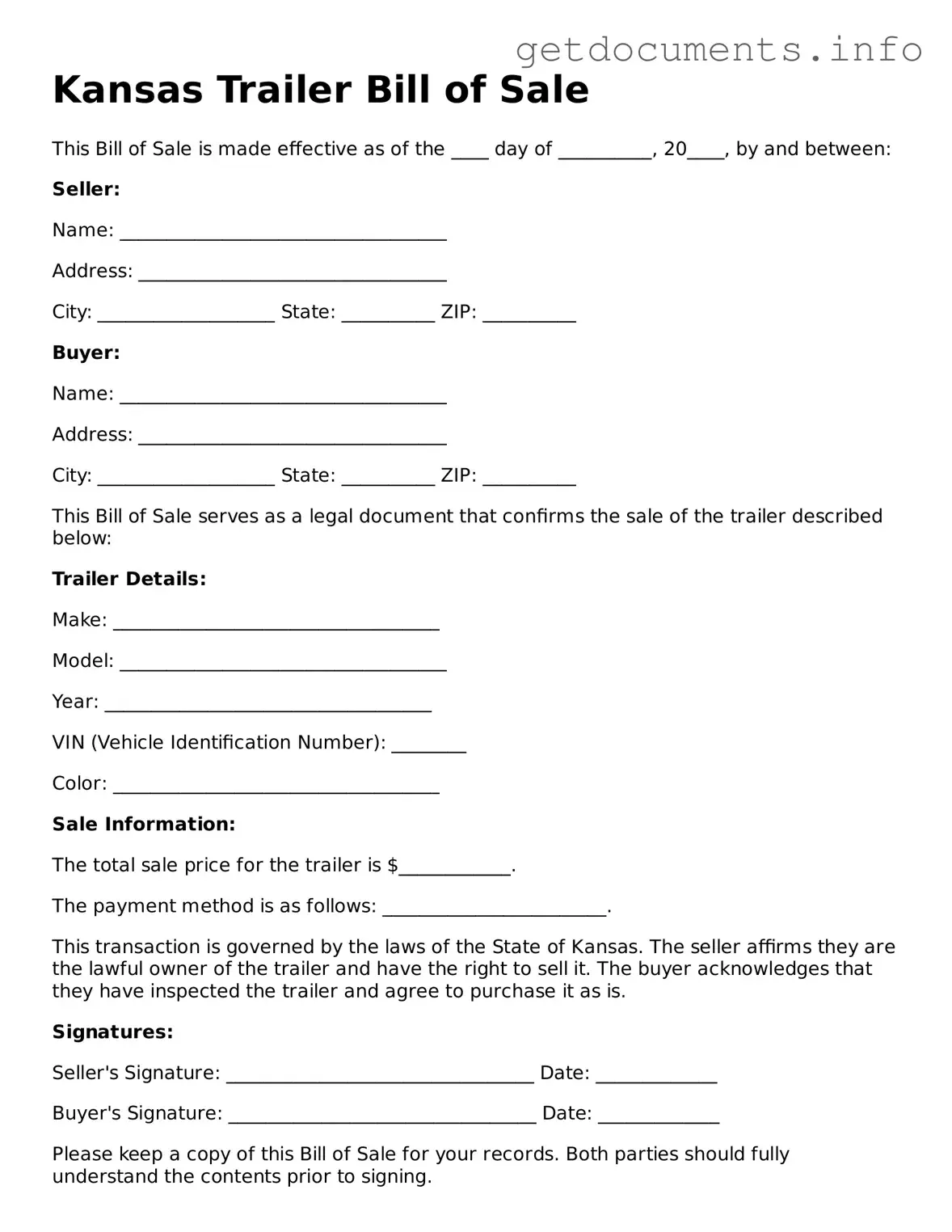Free Trailer Bill of Sale Template for Kansas
The Kansas Trailer Bill of Sale form serves as a crucial document that facilitates the transfer of ownership for trailers in the state of Kansas. This form not only provides essential information about the trailer and the parties involved but also ensures that the transaction is legally recognized. To simplify the process of buying or selling a trailer, consider filling out the form by clicking the button below.
Access Trailer Bill of Sale Editor

Free Trailer Bill of Sale Template for Kansas
Access Trailer Bill of Sale Editor
Got places to be? Complete the form fast
Fill out Trailer Bill of Sale online and avoid printing or scanning.
Access Trailer Bill of Sale Editor
or
⇩ PDF File
